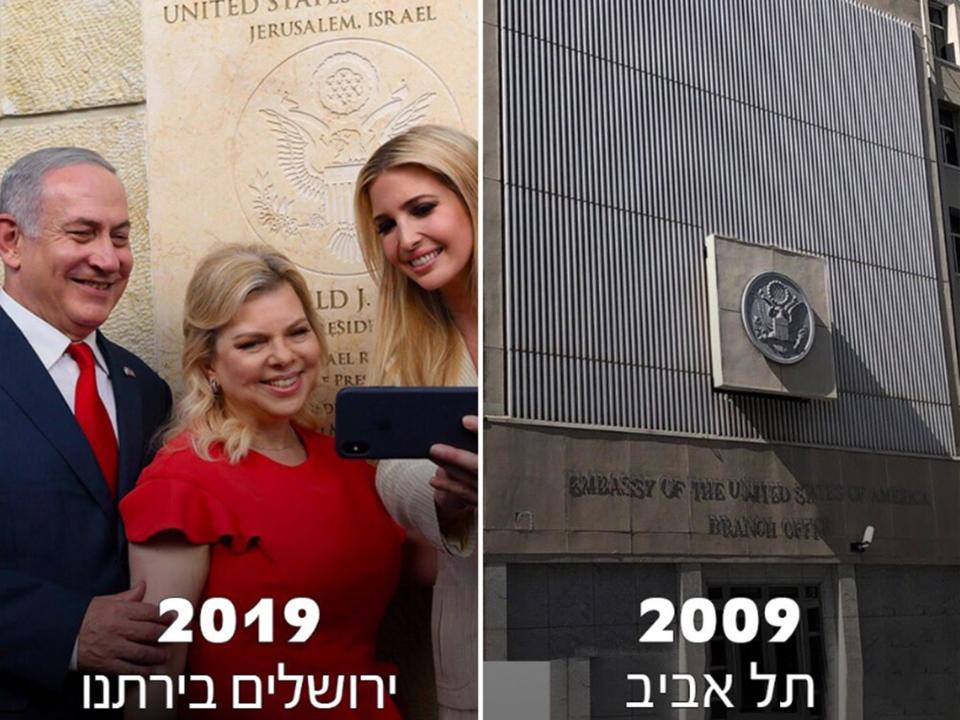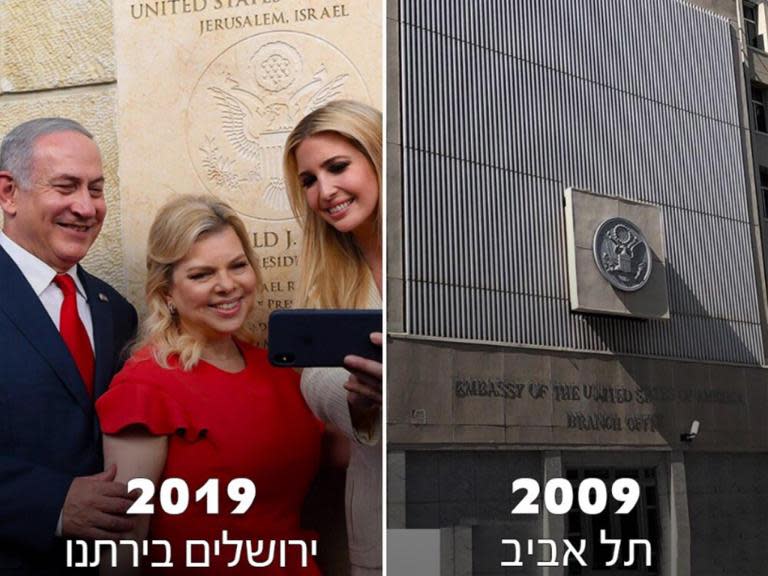Netanyahu's chilling '10 year challenge' post says so much about the future of Israel
Unless you’ve been living under a rock, you’ll have seen that the “10 year challenge” has swept the internet this week. Social media users have been busy sharing flashback pictures of themselves with more hair, worse skin and horrific wardrobes to show how far they’ve come.
A lot has changed in the last decade; that much is clear. In 2009, most of us were too busy discovering Lady Gaga and Twitter to worry about whether the host of The Apprentice would become president of the United States.
Though we don’t need an online photo challenge to remind us that, while most of us have grown on a personal level in the last decade, the world has, in many ways, become a darker, more challenging place.
One man who is partly responsible for this is Israeli prime minister Benjamin Netanyahu, who assumed office in March 2009. Never one to miss an opportunity to destroy any hint of optimism, Netanyahu posted a series of “10 year challenge” posts on Twitter. The first contrasted a 2018 picture of he and his wife smiling alongside Ivanka Trump outside the newly opened US Embassy in Jerusalem, with a 2009 image of the former US embassy in Tel Aviv.
Another tweet shows a vast metal border fence, complete with barbed wire, contrasted with an image of a borderless desert, supposedly from 2009.
Netanyahu is in the midst of a hotly contested Israeli election. He and his wife are also facing an ongoing bribery and fraud investigation, with Israeli police recommending that he be indicted. We should bear in mind that both strenuously deny the allegations against them. With all this in mind, it seems unsurprising that, just like his pal Trump, Netanyahu has taken to Twitter to fire up his base.
Netanyahu’s attempt to gloat about the widely criticised US embassy move by co-opting a playful social media hashtag is a disgraceful attempt to unite his followers behind a symbol of his poisonous legacy. This embassy, which was moved on President Trump’s instruction in August 2018, has helped to inflame one of the world’s most delicate, intractable conflicts. Historically, its move will be seen as part of a sequence of events that showed America’s moral decline on the world stage.
The world watched in horror in May 2018 as Israeli snipers opened fire on Palestinian protestors who, given Jerusalem’s significance in both Arab and Jewish history, objected to the move. Images of the Trumps smiling merrily were juxtaposed with horrifying photographs of the slaughter of over 100 protestors. Photographs appeared to show that many were unarmed, and children were counted among the dead. The Israelis maintain that they were acting in self-defence.
The day of the opening was the bloodiest day in Gaza for years, kicking off weeks of deadly violence as tensions escalated. It is deeply worrying that Netanyahu seems to think a move which saw Israeli forces condemned by the United Nations for using “excessive force” against protesters is something to celebrate.
Then we come to the wall. It is bewildering that anyone could look at those two images and be glad that a bright stretch of open land has become a wall surrounded with barbed wire in the space of a decade, but here we are. Make no mistake: Israel’s ongoing border blockade of Gaza has turned the strip of land into little more than an open air prison. A UN report has warned that the blockade will make Gaza, the world’s third most densely populated area, “uninhabitable“ by 2020. Ninety-seven per cent of the territory’s drinking water is undrinkable and there are only four hours of electricity a day. While Netanyahu celebrates his wall, Gaza's children are left to swelter, with - according to Richard Falk, a former UN Special Rapporteur - 50 per cent expressing no will to live.
On the domestic front, economic anxieties loom in Israel. A recent survey revealed that 60 per cent were worried or very worried that they would not be able to help support their children, with 65 per cent expressing concern about being able to save money for the future. Tellingly, only a third of Israelis thought that the economy would improve in the next 10 years. With potential corruption charges swirling, it is unsurprising that Netanyahu would follow Trump onto Twitter to distract from his own failures.
Perhaps the next time the “10 year challenge” comes along, in 2029, the Israeli prime minister of the day’s flashback will look back at these times of unrest, with a solution having been found and both Israel and Palestine existing in peace. Though with men like Netanyahu in power, seemingly determined to divide people over toxic symbols, this seems ever more unlikely.

 Yahoo News
Yahoo News 

